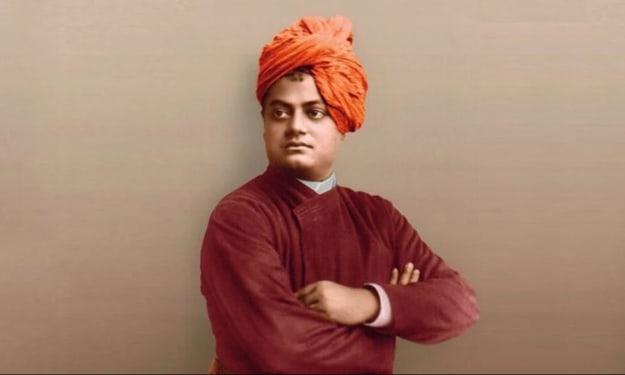The Body Talk
True Body Positivity and What the “All Bodies Are Beautiful” Movement Is Getting Wrong at Every Level

Accept first and foremost that this isn’t going to be what you think it is.
Secondly, accept that you aren’t going to like what I’m about to say.
Third, understand that you need to hear this anyway.
Fourth, read on.
Not to crap on the body positive movement, but it’s not working. The whole “all bodies are beautiful” thing is cool, don’t get me wrong, but it’s also like putting lipstick on a pig. Sure, it solves an ~aesthetic~ issue, but we still have an animal on our hands.
This is because the body positive movement seeks to give the bodies our society considers to be ugly a place on the pedestal instead of removing the pedestal altogether. If the goal of this movement is to empower women (and yes, it is largely directed towards women, let’s be honest) who feel bad about their bodies, shouldn’t we be focusing on why they feel so uncomfortable instead of telling them not to feel that way? Of course we should.
So why do we have it so backward?
First, let me start by saying this: the body positive movement as we know it, however flawed, isn’t worthless. In fact, it was this “all bodies are beautiful” campaign that lifted my spirits when I was a broken, self-conscious teenager who needed to be validated by being thin and light-skinned (for a black girl, anyway) and beautiful. If it hadn’t been for that intersection of “love your curves” and “love your skin,” I might never have gotten to where I am today. And while I can’t honestly say that the message is what I believe to be true now, I am grateful that it existed. For the place I was just after high school, it was what I needed.
But the fact remains that it’s still not quite right. Do I believe all bodies are beautiful? Yes, but why do I think that and why does it matter? That’s where I’ve found myself at odds with this ideology.
My answer is quite simple: all bodies are beautiful because all bodies possess living souls and hearts and minds and as long as they are alive. We would be fools to consider ourselves experts in the science behind the human mind, but as long as we have them, we have the capacity to understand that we are living, breathing, walking, sentient miracles. And these miracles have value.
Our bodies, then, are part of that miracle. That’s what makes them good and valuable and, in a certain way, beautiful. They don’t need to look a certain way. If a body carries a soul, it can have three tentacle arms and seventy tails and green scaly skin and no eyes, for all I care. The presence of a mind is what makes that body valuable. How, then, could we possibly understate the power of a body that can contain a soul?
And our bodies, however flawed, are doing their absolute best to contain and support our souls with the tools they’re given. A body in perfect health will function well, but even a body that isn’t well will do what it must to protect the soul inside of it—even if it means shutting down certain functions temporarily. It’s what bodies do. They change to fit the lives they’re attempting to support. Just like scabs are made to cover scratches, stretch marks are created by fat being stored, just like acne is a sign of unhealthy or compromised skin, just like spots that appear on our skin are always indicative of something deeper. Our bodies aren’t made to be aesthetically perfect—they’re made to sustain us, and sometimes they pick up scars and bumps and fat and blemishes along the way. Whatever we throw at them, they do their absolute best to keep us alive. And that is just another miracle to love.
Make no mistake, I get that humans enjoy aesthetic beauty or whatever you want to call the madness that drove us to starvation, but that fascination with colors and shapes was never meant to extend so far as to skew our view of the miracle that is the human body. Our bodies are not made to be art—they are made to be functional, and we need to respect that. Their beauty lies not in the way they look, but in the way they work.
THAT is why all bodies are beautiful. Because regardless of shape, size, color, illness, level of ability, etc., they exist to sustain us regardless of how we feel about them. They do their work as best they can so we can do as we please—even if all we want to do is sit around comparing the shapes of our meat-covered skeletons while they pump blood through hundreds of thousands of miles of blood vessels and expand and contract our muscles without our constant attention and keep watch for any changes in our surroundings that would endanger us and everything else they do to keep our valuable little souls safe. THAT is what makes them valuable. And that’s beautiful.
I came to this conclusion one day after realizing I had stretch marks. Mind you, they must have been there for a month or so before it really hit me, but I had no real reason to panic. One, my stretch marks look like lightning bolts so I was already into them aesthetically. But two, it’s just another sign of being alive, being older, being sustained by a miraculous instrument of life. Why wouldn’t that be wonderful? What is there to be ashamed of?
And so I sat, for some forty minutes or so, and forced myself to unlearn every bad thing I had ever heard about what bodies do until I reached this understanding: 1. I am a miracle, 2. my body is a miracle, 3. everything it does is to sustain me, and that, 4. I had nothing to be ashamed of.
And you know what? I felt an immediate connection to my body that I never had before, like I had been reunited with an old friend. I felt, maybe for the first time, true love for my body. And it felt amazing.
When I say I love myself now, I mean it. I love my soul and my body more and more each day, which is great when you consider how long we’re gonna be stuck together. I no longer compare myself to other women or struggle to look at myself in the mirror at any size (and since this revelation, my size has fluctuated quite a bit). My body is mine and mine alone. The bodies of other women will not change that for me.
Sure, I sometimes hear a small voice try to shame me when I'm out buying clothes because I'm not a double-zero, but that voice doesn't control me now. I know that voice is that of industries designed to thrive off of my self-hatred and body dysmorphia, not the voice of anyone who loves me. Why would I let that voice discourage me—or influence my decisions at all? I wouldn't. So I don't.
Think about the size of the clothing you wear. Understand that it is merely a side effect of your miraculous body sustaining you whether you like it or not and that the number itself means nothing. Who’s to say you can’t love that number if you really want to? Who has the authority to make you love or hate your body when they don’t live in it every day? No one, that’s who. You’re the master of your body and mind and the instant you realize that, you’re free. Free to love your body for the right reasons, free to see your "flaws" for what they really are—evidence of the miracle you've always been.
So take a moment now and think about your body. Not it’s appearance or it's "attractiveness." Think about what it's doing for you right now. Think about all the systems inside of you and their functions that are allowing you to live and breathe and move. How in the world could you be anything less than a miracle?
Go ahead and accept it. In fact, say it now—just to yourself. Admit what you already know: I am a miracle.
There. That's settled then. You. Are. A. Miracle. And a miracle does not need a pedestal to be valuable, or a movement that calls it beautiful for looking a certain way. A miracle is a treasure all on its own—and this treasure is one you get to keep forever.
(This post was created to be universally-appealing and may not apply equally to all women—especially women of color and queer women and/or nonbinary people. That's a whole other post for another day.)
About the Creator
Gaia Atlas
A bi/demi/queer feminist of color with no chill. If you're looking for pieces on body positivity, bigotry in entertainment, and the struggle of common sense vs. evolutionary instincts (aka, smart brain vs. monkey brain), stay tuned.






Comments
There are no comments for this story
Be the first to respond and start the conversation.